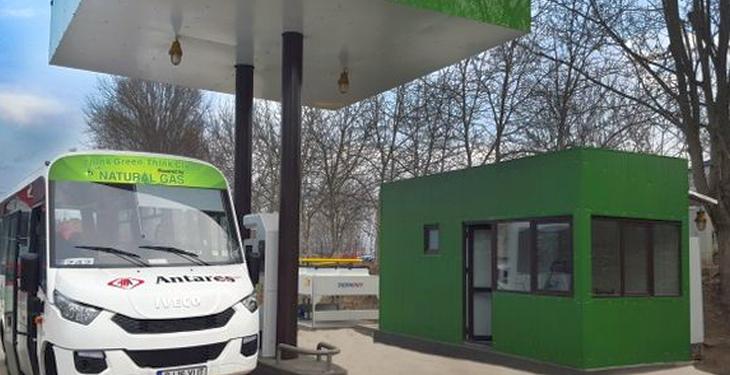Although the European directives include compressed natural gas (CNG) in the list of green alternative fuels, it is not included in a full list of legislative documents of Romania. But the Environment Ministry promises to change the situation as soon as possible.
“We will remedy the situation as soon as possible, we will have to change the legislation, but this could take several months,” State Secretary of the Ministry of Environment, Ion Cimpeanu, told energynomics.ro. He explained that although these changes are not within his competence, colleagues in the ministry are considering the legislative changes needed to include CNG on the list of eco fuels.
“These are two main documents of the Ministry of Environment, which, based on the principle of the neutrality of legislation towards different technologies, promoted by different European directives, should be open to other alternative fuels, not just to electromobility”, states Cătălin Văluţanu, compressed gas vehicles expert..
The first order concerns the financing of the supply infrastructure, and the second- the subsidy for the purchase of electric vehicles, explains Văluţanu.
In other news, the Ministry of Transport is considering amending and completing its Order 229/2003 to include CNG on the list of fuels for which car modifications may occur, in addition to liquefied gas (LPG). The difference between CNG and LPG is the source – in the first case we are talking about a clean source – well gas versus petroleum processed gas, which is much more polluting, the quoted expert explained.
Government of Romania has adopted by Decision, last month, the National Policy Framework for the development of the market regarding alternative fuels in the transport sector and the installation of the relevant infrastructure in Romania and the setting up of the Interministerial Coordination Council for the development of the market for alternative fuels, sources told energynomics.ro.
“The next steps will be to set up the Council, establish its working procedures, and that will take some time. Then working groups, inter-ministerial coordination, representatives will have to be formed, the secretariat formed … that we are going to feed on with information,” the quoted source said.
Thus, the basis are set for facilitating investments in the field of alternative fuels, but also the legal bases of infrastructure construction required for electric vehicles and for compressed gas (CNG) or hydrogen.
At the same time, Romania will be able to escape the infringement procedure launched in January by the European Commission due to the lack of transposition of EU norms into the national framework.
“It will take a while before we get rid of the infringement. The Commission will have to be notified, then it will have to verify the compliance with its rules and procedures, and then it will raise the infringement procedure,” the quoted source said.
The European Commission has decided in January to send Malta and Romania to the EU Court of Justice for failing to notify national policy frameworks under Directive 2014/94 / EU on the installation of alternative fuel infrastructure.
Member States were required to notify national policy frameworks to the Commission by 18 November 2016. Malta and Romania did not respond to this request although they received a letter of formal notice from the Commission and a reasoned opinion on 15 February, July 13, 2017.
